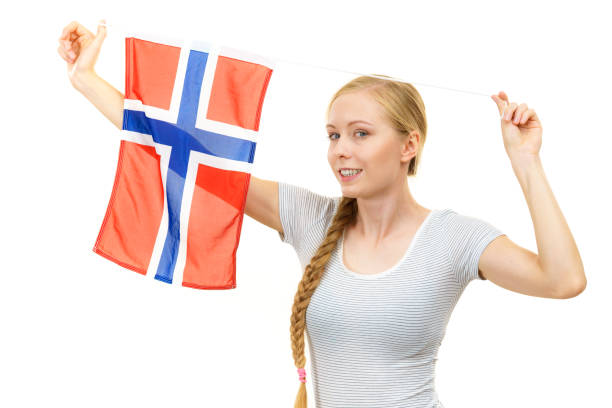Studying in the Land of the Midnight Sun: A Comprehensive Guide for International Students
Norway, with its dramatic fjords, vibrant cities, and world-class educational system, beckons international students seeking an exceptional academic experience in a breathtaking environment. For students from across the globe, Norway offers a unique blend of cutting-edge academic programs, innovative teaching methods, and a strong emphasis on research. This comprehensive guide empowers you, the international student, to navigate the landscape of higher education in Norway, from exploring universities and programs to understanding admission requirements and the application process.
Why Study in Norway?
-
World-Class Education: Norway boasts a globally recognized education system, consistently ranking high in international education metrics. Universities in Norway prioritize research and innovation, offering students the opportunity to learn from leading academics and contribute to cutting-edge research projects.
-
Focus on Student Well-being: Norwegian universities prioritize student well-being, fostering a supportive learning environment. Universities offer ample support services, from academic advising to career counseling and mental health resources.
-
Unique Programs: Norwegian universities offer a diverse range of undergraduate and graduate programs, including unique programs in fields like sustainable fisheries management, maritime technology, Arctic studies, and peacebuilding.
-
International Exposure: Studying in Norway allows you to connect with a diverse student body, fostering intercultural understanding and global citizenship. Many universities offer English-language programs, making them accessible to international students from various backgrounds.
-
Breathtaking Scenery: Norway’s stunning natural beauty provides a unique backdrop for your studies. From majestic fjords and snow-capped mountains to vibrant cities and charming towns, Norway offers endless opportunities for exploration and adventure.
-
Safe and Stable Environment: Norway is a safe and stable country with a low crime rate and a strong social safety net. This allows international students to focus on their studies and enjoy a high quality of life.
Types of Universities in Norway
The Norwegian higher education system comprises two main types of institutions:
-
Universities: Universities offer a broad range of academic programs, including Bachelor’s, Master’s, and Ph.D. degrees. They conduct extensive research across various disciplines.
-
University Colleges: University colleges focus on professional programs, offering Bachelor’s degrees and some Master’s programs in specific professions like engineering, nursing, and teacher education.
Admission Requirements for International Students
The specific admission requirements for international students vary depending on the university and program, but generally include:
-
Academic qualifications: International students must have a secondary school diploma or equivalent qualification that meets the university’s standards.
-
English language proficiency: Most universities require international students to demonstrate English language proficiency through standardized tests like TOEFL or IELTS. For programs taught in Norwegian, proficiency in Norwegian might be required.
-
Standardized test scores (if applicable): Some Master’s programs might require standardized test scores like the GRE (Graduate Record Examinations) or GMAT (Graduate Management Admission Test).
-
Motivation letter: A well-written motivation letter outlining your academic goals, research interests, and reasons for choosing the specific program is typically required.
-
Letters of recommendation: Strong letters of recommendation from teachers or professors can strengthen your application.
-
Financial documentation: You might need to provide documentation demonstrating sufficient financial resources to support yourself during your studies in Norway.
Application Process for International Students
The application process for international students typically involves these steps:
-
Research Universities and Programs: Thoroughly research universities and programs in Norway that align with your academic interests and career goals. Utilize university websites and rankings to compare programs and identify the best fit for you.
-
Check Admission Requirements: Carefully review the specific admission requirements for your chosen program. Ensure you meet all the necessary criteria before proceeding with the application.
-
Gather Application Materials: Compile all the required application materials, including transcripts, test scores, letters of recommendation, and a motivation letter.
-
Apply Online: Most universities in Norway have online application portals. Submit your complete application within the designated deadlines.
-
Student Visa Application: If admitted, you will need to apply for a student visa to study in Norway. The university can provide guidance on the visa application process.
Cost of Studying in Norway
The cost of studying in Norway can vary depending on the university, program, and your lifestyle choices. However, Norway generally has a higher cost of living compared to many other European countries. Here’s a breakdown of the main cost factors:
- Tuition fees: Public universities in Norway do not charge tuition fees for students from the EU/EEA (European Economic Area) or Switzerland. However, a semester registration fee of around NOK 550 (approximately €70) is required. International students from outside the EU/EEA and Switzerland typically face tuition fees ranging from NOK 130,000 to NOK 400,000 per year (approximately €11,000 to €35,000). The exact amount varies depending on the university and program.
- Living expenses: Accommodation, food, transportation, and other living expenses can be significant. The average monthly living cost for an international student in Norway can range from NOK 8,000 to NOK 12,000 (approximately €900 to €1,350).
Financing Your Studies in Norway
The high cost of living in Norway can be a barrier for some international students. However, several funding opportunities can help you finance your studies:
- Scholarships: Numerous scholarships are available for international students in Norway. These scholarships can be merit-based, need-based, or targeted towards specific fields of study. Explore scholarships offered by the Norwegian government, universities, private foundations, and organizations in your home country.
- Government Loans (if applicable): Students from some countries might be eligible for government loans to support their studies abroad. Research loan programs offered by your home government and explore the possibility of combining loans with scholarships or other funding sources.
- Part-Time Work Opportunities: International students in Norway are allowed to work part-time (up to 20 hours per week during semesters) with proper authorization. Explore these avenues to generate income and offset living expenses:
- On-Campus Jobs: Universities often offer on-campus work opportunities in libraries, administrative offices, student centers, or cafeterias. These jobs can provide valuable work experience while contributing to your income.
- Part-Time Jobs in Your Field: Look for part-time jobs relevant to your skills and field of study. This can provide practical experience while generating income. Research institutes, research centers, or companies related to your field might offer part-time positions suitable for international students.
- Freelance or Online Work (if applicable): Depending on your skills and qualifications, explore freelance or online work opportunities that allow you to work remotely while studying in Norway. This could involve freelance writing, editing, graphic design, virtual tutoring, or online content creation (if your visa permits).
- Teaching Assistantships: Some universities offer teaching assistantships to international students. These positions typically involve assisting professors with teaching duties or research projects in exchange for a stipend or tuition remission. Here’s how to explore teaching assistantships:
- Contact University Departments: Reach out to the department or faculty where you plan to pursue your studies. Inquire about potential teaching assistantships available for international students.
- Highlight Relevant Skills: When applying for a teaching assistantship, emphasize your strong language skills (English and potentially Norwegian), teaching experience (if any), and subject knowledge relevant to the professor’s research area.
- Crowdfunding: Consider crowdfunding platforms as an alternative funding source. Create a compelling campaign that outlines your academic goals, financial needs, and how the funds will be used for your studies in Norway. This approach can help you raise funds from friends, family, and a broader online community who support your educational aspirations.
Living Frugally and Managing Costs in Norway
While securing scholarships and exploring various funding options is crucial, understanding the cost of living in Norway and practicing smart budgeting can significantly impact your financial situation. Here are some tips for living frugally and managing costs effectively:
- Accommodation: Housing can be a significant expense in Norway. Explore affordable housing options such as student dormitories, shared apartments, or renting a room in a private home. Consider living outside city centers where housing costs might be slightly lower.
- Food and Groceries: Eating out frequently can be expensive. Explore grocery stores offering budget-friendly options and prepare meals at home. Consider joining student organizations that might organize group grocery shopping trips or bulk-buying opportunities.
- Transportation: Utilize public transportation (buses, trams, or subways) for commuting. Explore student discounts on public transportation passes. Consider cycling or walking for shorter distances when the weather permits. Taking advantage of Norway’s well-developed cycling infrastructure can be a healthy and cost-effective way to get around.
-
Textbooks and Course Materials: Textbooks and academic resources can be expensive in Norway. Explore online resources, libraries, or used book stores to acquire course materials at a lower cost. Borrow textbooks from classmates or seniors whenever possible. Consider e-textbooks or online learning resources to reduce the need for physical textbooks.
-
Entertainment and Leisure: Norway offers breathtaking natural landscapes and free outdoor activities like hiking, exploring fjords, or visiting national parks. Utilize these free leisure options to explore the beauty of Norway. Consider student discounts for museums, cultural events, or movie tickets. Many universities and student organizations also organize affordable social events and activities for international students.
-
Budgeting and Tracking Expenses: Create a budget plan that outlines your estimated income (scholarships, part-time work) and anticipated expenses (accommodation, food, transportation, etc.). Track your expenses meticulously to identify areas where you can cut back and optimize your budget. Utilize budgeting apps or spreadsheets to manage your finances effectively.
The Visa Process for International Students in Norway
To study in Norway, you’ll need to obtain a student visa. The specific requirements can vary depending on your nationality and the duration of your studies. Here’s a general overview of the student visa process:
-
Gather Required Documents: Prepare the necessary documents as outlined on the website of the Norwegian Directorate of Immigration (UDI). These documents typically include:
- A valid passport
- Proof of acceptance from a recognized university in Norway
- Documentation of financial resources to support your studies and living expenses in Norway
- Proof of health insurance
- Passport photos
-
Apply Online: Submit your application for a student visa online through the UDI website. There might be an application fee associated with the process.
-
Processing Time: Processing times for student visas can vary, so it’s crucial to apply well in advance of your intended study start date. Allow several months for processing, especially during peak application seasons.
-
Biometric Enrollment (if applicable): For some nationalities, biometric enrollment (fingerprints and photograph) might be required as part of the application process. This would typically take place at a designated VFS Global center in your home country.
-
Visa Decision: The UDI will communicate the decision regarding your student visa application via email. If approved, the visa will be linked to your passport.
-
Arrival in Norway: Once you arrive in Norway, you might need to register with the local police station to confirm your residence and activate your student visa.
Additional Considerations for International Students
-
Learning Norwegian: While English proficiency is typically required for most programs in Norway, learning basic conversational Norwegian can enhance your integration into Norwegian society and academic life. Enrolling in Norwegian language courses before or during your studies is highly beneficial.
-
Student Housing: Securing student housing can be competitive, especially in major cities. Start your search early and explore various options like student dormitories, shared apartments, or private rentals. Utilize online resources and student housing websites to find suitable and affordable accommodation.
-
Healthcare: International students in Norway are required to have health insurance that covers the duration of their stay. Research student health insurance options available through your home country or consider private health insurance plans specifically designed for international students in Norway.
-
Part-Time Work Opportunities: As mentioned earlier, international students are allowed to work part-time (up to 20 hours per week during semesters) with proper authorization. Explore on-campus job opportunities, part-time jobs related to your field of study, or freelance/online work options (if your visa permits) to generate income and gain valuable experience.
-
Culture and Integration: Embrace the opportunity to experience Norwegian culture and connect with the local community. Participate in university-organized events, join student clubs and organizations, and explore the breathtaking natural landscapes of Norway. Becoming a cultural ambassador between your home country and Norway can be a rewarding experience. Participate in international student events or organize cultural exchange activities to showcase your own culture and traditions. This not only fosters cross-cultural understanding but also builds lifelong friendships with fellow international students.
-
Academic Support: Norwegian universities offer various academic support services for international students. These services might include language tutoring, writing centers, or study skills workshops. Utilize these resources to navigate your academic journey smoothly and excel in your studies.
-
Weather and Climate: Norway has a temperate climate with distinct seasons. Winters can be cold and snowy, while summers are mild and offer long daylight hours (experiencing the famous “midnight sun” phenomenon in the north). Be prepared for the weather by packing appropriate clothing and footwear. Embrace the outdoor activities that each season offers, from winter sports to summer hiking and camping.
-
Safety and Security: Norway is generally a safe country with low crime rates. However, basic safety precautions are always recommended. Be aware of your surroundings, especially in unfamiliar areas. Utilize public transportation responsibly and follow local safety guidelines.
-
Sustainability and Environmental Awareness: Norway is a leader in sustainability practices. Embrace this focus by adopting an eco-friendly lifestyle while studying in Norway. Utilize public transportation, reduce waste, and appreciate the country’s stunning natural beauty.






